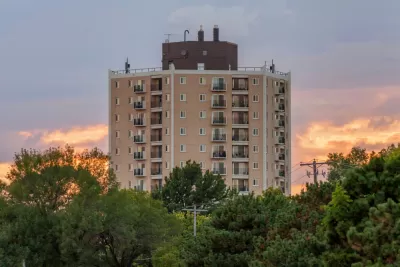After the city passed a rent stabilization ordinance, landlords are reworking leases to include new utility charges, effectively raising rents by as much as 14 percent.

“Some St. Paul landlords, facing soaring inflation and energy costs, are trying to get around the city’s new rent control law by charging tenants for utilities that used to be included in the rent,” writes Max Nesterak in the Minnesota Reformer. “It’s leading to rent increases of more than 10% for some renters in a city where landlords may only increase rent 3% a year following passage of a voter-approved ordinance that went into effect May 1,” which does not explicitly mention utilities. For some tenants, this has meant a rise in total housing costs of as much as 14 percent over the last year.
“However, the city’s rules don’t allow for landlords to circumvent the 3% cap on rent by shifting responsibility for utilities onto the tenant, according to St. Paul spokeswoman Suzanne Donovan. Nor can landlords rewrite a lease when it’s renewed to include these charges if they increase tenants’ costs by more than 3%.”
Tenant advocate and attorney Margaret Kaplan argues that “(Utilities) are part of the cost of living in the unit, and therefore, they should be included under what is considered a rent increase.” Organizations such as Kaplan’s Housing Justice Center are working with tenants and landlords to resolve disputes without going to court, but not all landlords have been receptive.
FULL STORY: Tenants say landlords are skirting St. Paul rent control with new utility charges

Planetizen Federal Action Tracker
A weekly monitor of how Trump’s orders and actions are impacting planners and planning in America.

Restaurant Patios Were a Pandemic Win — Why Were They so Hard to Keep?
Social distancing requirements and changes in travel patterns prompted cities to pilot new uses for street and sidewalk space. Then it got complicated.

Map: Where Senate Republicans Want to Sell Your Public Lands
For public land advocates, the Senate Republicans’ proposal to sell millions of acres of public land in the West is “the biggest fight of their careers.”

Maui's Vacation Rental Debate Turns Ugly
Verbal attacks, misinformation campaigns and fistfights plague a high-stakes debate to convert thousands of vacation rentals into long-term housing.

San Francisco Suspends Traffic Calming Amidst Record Deaths
Citing “a challenging fiscal landscape,” the city will cease the program on the heels of 42 traffic deaths, including 24 pedestrians.

California Homeless Arrests, Citations Spike After Ruling
An investigation reveals that anti-homeless actions increased up to 500% after Grants Pass v. Johnson — even in cities claiming no policy change.
Urban Design for Planners 1: Software Tools
This six-course series explores essential urban design concepts using open source software and equips planners with the tools they need to participate fully in the urban design process.
Planning for Universal Design
Learn the tools for implementing Universal Design in planning regulations.
Heyer Gruel & Associates PA
JM Goldson LLC
Custer County Colorado
City of Camden Redevelopment Agency
City of Astoria
Transportation Research & Education Center (TREC) at Portland State University
Camden Redevelopment Agency
City of Claremont
Municipality of Princeton (NJ)





























